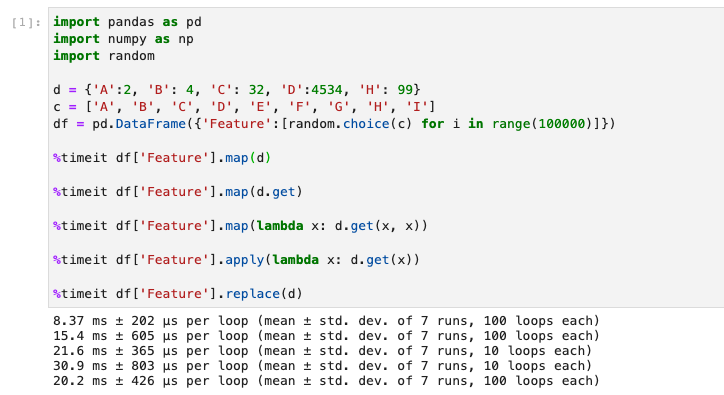Please help me understand why this "replace from dictionary" operation is slow in Python/Pandas:
# Series has 200 rows and 1 column
# Dictionary has 11269 key-value pairs
series.replace(dictionary, inplace=True)
Dictionary lookups should be O(1). Replacing a value in a column should be O(1). Isn't this a vectorized operation? Even if it's not vectorized, iterating 200 rows is only 200 iterations, so how can it be slow?
Here is a SSCCE demonstrating the issue:
import pandas as pd
import random
# Initialize dummy data
dictionary = {}
orig = []
for x in range(11270):
dictionary[x] = 'Some string ' + str(x)
for x in range(200):
orig.append(random.randint(1, 11269))
series = pd.Series(orig)
# The actual operation we care about
print('Starting...')
series.replace(dictionary, inplace=True)
print('Done.')
Running that command takes more than 1 second on my machine, which is 1000's of times longer than expected to perform <1000 operations.

